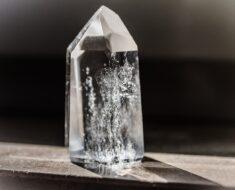
Are you tired of always running short on shampoo? Or does your hair produce oil more frequently than you’d like? Showering comes to us as naturally as breathing, but it’s much more technical than you think. You may unknowingly miss out on some essential practices that could revolutionize your bathing experience.
According to a survey on American hygiene in metropolitan cities like New York, California, and North Carolina, most Americans take 6.2 showers weekly. However, most health professionals recommend 2 to 3 weekly showers for better skin. Didn’t know that? Contrary to popular belief, showering more often is not the perfect routine.
Let’s uncover some common shower misconceptions and debunk them one by one. Understanding the truth can transform your showering routine into a more efficient and enjoyable experience. So, say bye-bye to inadequate hygiene and embrace a showering pattern that works wonders for you. If you want to know about more shower myths, do’s and don’ts, and nifty tips, read the following list.
Not cleaning your showerhead
The worst things lurking in your showerhead are dirt and mold. Wrong! The Showerhead Microbiome Project, launched by an ecologist at North Carolina State University, found showerheads harboring a surprising amount of bacterial diversity. The team discovered many bacteria, including potentially harmful ones, in the samples they collected. These findings are especially concerning for people with weak immune systems.
It would be best to occasionally clean your showerhead to avoid the buildup of harmful bacteria and dirt deposits. Use vinegar and water to clean your showerhead effectively. If your showerhead has removable parts, wash them separately for a more thorough cleaning. However, consider calling a trusted shower replacement company in humid places like North Carolina to install a better high-quality shower for you if your showerhead has been through persistent wear and tear. Once you install a new showerhead, establish a proper cleaning routine or monthly maintenance to prevent the buildup of germs and dust. Keeping your showerhead clean and considering a replacement when needed allows you to enjoy a refreshing and satisfying shower every time.
Not scrubbing your feet
Exfoliating is terrible for your skin. Actually, scrubbing your feet is an effective way to maintain them and keep them in healthier condition. A lack of daily foot washing can lead to sweat, dirt, and bacteria buildup, creating an environment ripe for unpleasant foot odor and potential infections. Imagine coming home after a long day, removing your shoes, and catching a whiff of that distinct smell. Not pleasant, right? That’s why it’s crucial to make washing your feet a regular part of your hygiene routine.
So, how often should you wash your feet? Dermatologists generally recommend washing your feet daily, especially if you engage in activities that make your feet sweaty or expose them to dirt and germs. Regular washing helps remove bacteria, sweat, and dead skin cells, keeping your feet clean and fresh.
To properly pamper your feet, use warm water and a block of mild soap to thoroughly cleanse your feet, focusing between your toes and the soles where dirt and bacteria accumulate. Use a washcloth or gentle brush to exfoliate the skin and remove dead skin cells.
Using the wrong towel
All hair towels are the same. False! You may unknowingly be subjecting your skin and hair to unnecessary damage by using rough or abrasive towels. These towels cause friction and irritation on your delicate skin and scalp, leading to redness, dryness, and even microscopic tears that can compromise your skin’s barrier function.
So, what towel should you use instead? Enter microfiber hair towels. These specialized towels consist of ultra-fine fibers that are gentle on your skin and hair. Research has shown that microfiber towels have superior absorbency to traditional towels, meaning they can effectively remove excess moisture from your skin and hair without harsh rubbing.
Your technique also counts when drying your skin and hair. Instead of vigorously rubbing your body and scalp dry, gently pat with your towel to avoid irritated skin, frizz, and damage. You can also wrap a microfiber towel around your hair to effectively absorb moisture and reduce drying time.
Washing your hair too often
You should wash your hair daily, or else it’ll get oily. Untrue! Because your scalp produces natural sebum oils that nourish and moisturize your hair. However, frequent hair washes strip away these essential oils, leaving your hair dry, flaky, and damaged. Not sure how often should you wash your hair? The answer varies depending on your hair type, lifestyle, and preference.
For most people, washing your hair every 2-3 days is sufficient to keep it clean and fresh. However, suppose you have a particularly oily scalp or engage in activities like sports or exercise that make your hair sweaty and dirty. In that case, you should wash it more often. On the other hand, having dry or curly hair that requires more moisture means you should decrease your wash days to preserve the natural oils and maintain hydration.
But how do you know your hair needs a good scrub? If your scalp feels greasy, your hair appears limp and lifeless, or you detect an unpleasant odor, it means that it’s time for a wash. Focus on how your hair looks and feels, and adjust your washing routine accordingly.
Not taking cold showers
Cold showers make you sick. Contrary to this belief, research suggests cold showers may have several health benefits. While the shock of cold water may make you shiver and gasp for breath initially, it can stimulate your body in ways that promote overall well-being.
In a study published by ULCA Health, participants who took cold showers experienced a 29% reduction in sick leave compared to those who took hot showers. This result means that the chill of cold showers can strengthen your immune response and help ward off pesky colds and flu. Cold showers also improve your skin, circulation, and mental clarity.
When that icy water hits your skin, it’s like a wake-up call for your senses. It’s nature’s way of slapping you awake and saying, “Good morning, superstar!” The rush of cold water releases a surge of energy, leaving you feeling invigorated and ready to conquer the day. Who needs caffeine when you have the power of cold showers?
Conclusion
Let bad showering habits go down the drain by adopting effective showering habits—time to wash away old routines and step into the showering revolution. Get ready to lather, rinse, and repeat with style, knowing you’re making a positive change, one shower at a time.
Now aware of common mistakes and myths, transform your showering routine into a rejuvenating experience. Embrace the power of good habits, relish the feeling of water cascading down your body, and seize the opportunity to start each day with a refreshing splash.





